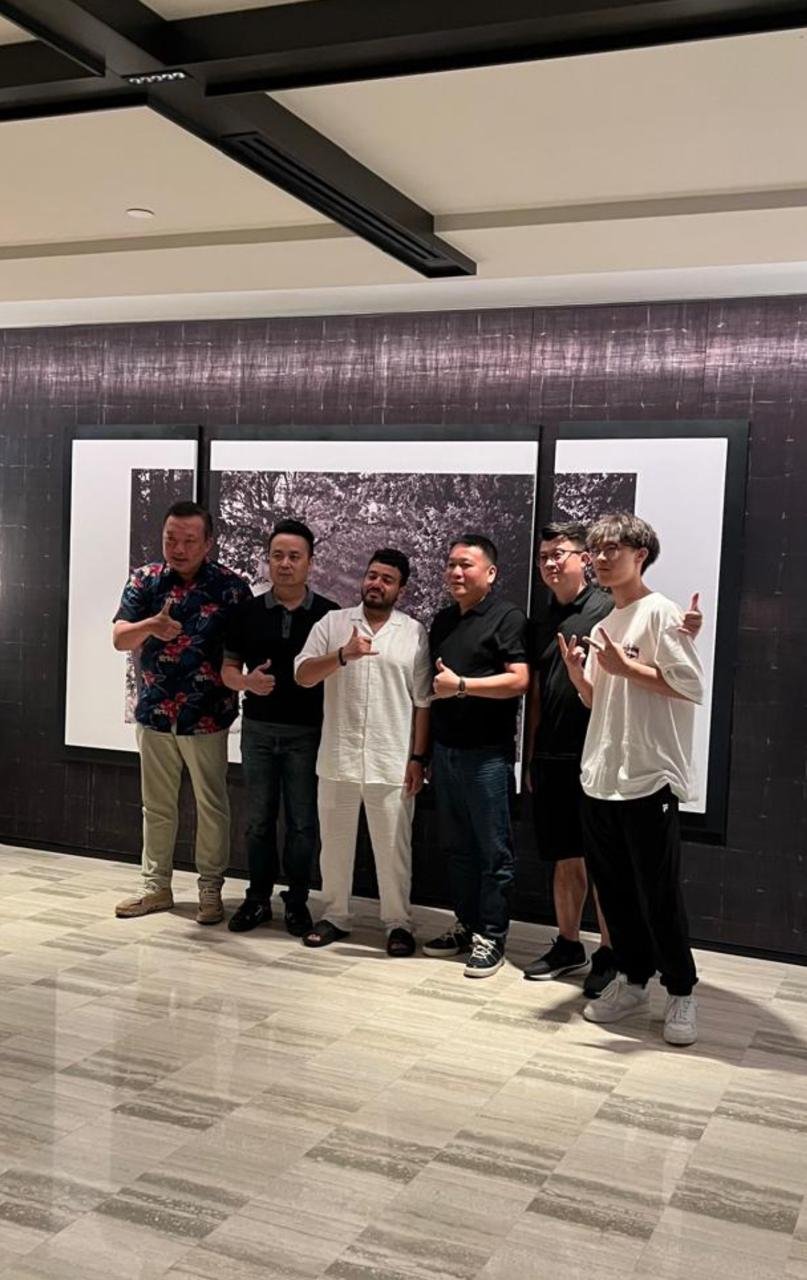Mohamed Arou: An Economic Surprise in the Making for Egypt and the UAE After Meeting Singapore’s Prime Minister

In an era of shifting global economic dynamics and the growing influence of Arab investments in shaping emerging markets, the name of Egyptian international footballer and Al-Wasl Club star, Mohamed Arou, has begun to resonate well beyond the football field. Today, Arou stands out not only as a sports icon but also as one of the most promising figures in the world of business and investment.
Over the past few years, Arou has built an integrated investment group in the UAE that includes several key companies: *Arou Investment*, *Falso Gold Trading*, *Al-Hiba Project Management*, and *Zeno Project Management*. These ventures reflect a strategic vision that blends youthful ambition, international connections, and a growing understanding of complex economic landscapes.

Recently, his name re-emerged in the headlines of economic media outlets following an official visit to Singapore, where he held a surprise meeting with the country’s Prime Minister. The encounter, which had not been announced in advance, went far beyond diplomatic protocol. It was closely tied to a forthcoming joint Egyptian–Emirati project that observers say could mark a turning point for Egypt’s economy, potentially opening new avenues of investment between Cairo, Abu Dhabi, and Asia’s fastest-rising markets.
While Arou kept the project’s details under wraps, he confirmed that it would be a “major surprise” and described it as a genuine opportunity to strengthen the Egyptian economy through cross-border investments. According to him, the initiative is not merely financial—it is a platform designed to enhance economic ties between nations with complementary strengths in human capital and investment capacity. This element of mystery has only fueled speculation about the nature of the project, with observers wondering whether it will involve energy, technology, services, or infrastructure.
From an economic perspective, Arou’s involvement signals increasing confidence in Egypt’s investment climate. In recent years, the country has enacted structural reforms such as a new investment law, the expansion of free zones, and streamlined regulations for foreign partnerships. At the same time, the UAE’s role in supporting Egypt’s economy has evolved into a long-term strategic partnership covering trade, energy, infrastructure, and finance.
Singapore’s role in this story is far from incidental. Today, the city-state stands as one of the world’s most important financial and commercial hubs, serving as a gateway to Southeast Asian markets. For Egypt, which is positioning itself as a regional hub for energy and trade, any project linking it with Asian powerhouses through Emirati partners could deliver a significant boost in foreign capital and global positioning.
Within Arou’s investment portfolio, *Arou Investment* serves as the umbrella company, while *Falso Gold Trading* anchors the group in the precious metals sector—a volatile yet consistently attractive safe haven. Meanwhile, *Al-Hiba* and *Zeno Project Management* provide the operational and managerial backbone, enabling the group to execute large-scale projects both domestically and internationally.
Strategically, the anticipated project is expected to bring new Emirati and Asian capital into the Egyptian market, in line with the state’s vision of increasing foreign direct investment. The move strengthens Egypt’s image as an attractive destination capable of delivering competitive returns even amid global uncertainty.
Arou’s unique dual identity—as both an international footballer with mass appeal and a businessman—gives him an additional edge. His sporting reputation provides him with credibility and visibility, which he leverages to build trust with local and international partners alike. This blend of sports and business lends his story a distinctive aura, making his economic ventures newsworthy far beyond the business pages.
The meeting with Singapore’s Prime Minister also sends a clear message: the project is not confined to bilateral cooperation between Egypt and the UAE. It could well be a trilateral or even multilateral initiative, bringing together Arab and Asian economies under one strategic umbrella. It also reflects a new mindset among Arab investors, who are increasingly pursuing ventures with geo-economic impact rather than conventional investment opportunities.
Historically, the UAE has been among Egypt’s strongest supporters, investing heavily in energy, real estate, infrastructure, and finance. What is new about Arou’s initiative is that it comes from a young, dynamic figure who bridges the worlds of sports and business—signaling the rise of a new generation of Arab entrepreneurs with a global outlook.
Although the details of the project remain undisclosed, the mere announcement of the meeting—and the hint of a “major surprise”—has been enough to stir anticipation among analysts and investors. Should the project be unveiled, it is widely expected to spark a fresh wave of Arab and Asian investment in Egypt, diversifying funding sources and enhancing competitiveness.
Ultimately, Mohamed Arou’s story is no longer just about football glory. It has become the tale of a businessman investing in the future, driven by the belief that Egypt and the UAE together can craft a new success story on the global economic map—with Singapore as a key partner. His journey illustrates that investment is no longer the exclusive domain of giant corporations: ambitious individuals with vision and determination can also shape economies and inspire transformation.




